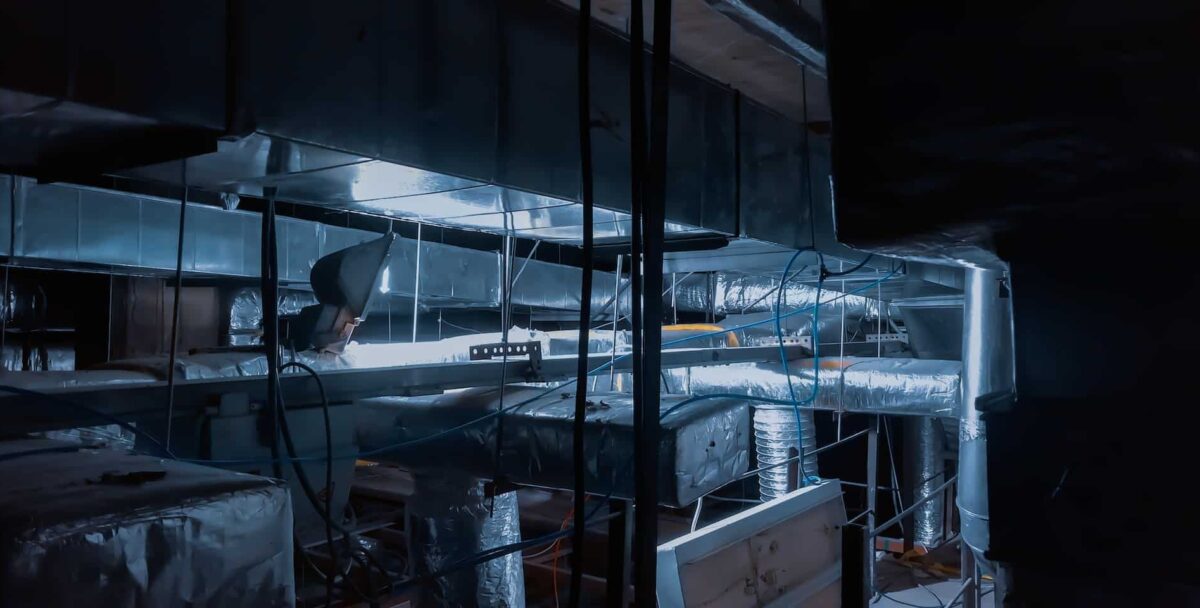Air quality is often an overlooked aspect of data center operations, but it is actually one of the most critical factors in maintaining a safe and efficient data center. Poor air quality can lead to several problems, including equipment failure, reduced efficiency, and increased costs. This blog post will discuss why air quality is so important in data centers and how you can ensure that your data center has good air quality.
The Importance of Air Quality in Data Centers
Data centers are full of sensitive electronic equipment that is sensitive to dust, humidity, and other airborne contaminants. If these contaminants build up on the equipment, they can cause various problems, including equipment failure, reduced efficiency, and increased costs. For example, if dust buildup on servers causes them to overheat, it can lead to decreased performance or even complete system failure. In addition, poor air quality can also cause health problems for data center personnel.
Improving Data Center Air Quality
There are several ways to improve air quality in data centers. One way is to use air filters that remove contaminants from the air before they have a chance to settle on sensitive equipment. Another way is to use positive pressure ventilation systems that keep contaminated air from entering the data center in the first place. By improving air quality in your data center, you can help prevent problems with equipment and reduce operating costs.
The Components of a Data Center and Their Impact on Air Quality
The components of a data center can have a significant impact on air quality. In particular, the server racks, cooling system, and power distribution system can all contribute to poor air quality. Here’s a closer look at each of these components and how they can impact air quality in a data center.
Server Racks
The server racks in a data center are one of the most significant sources of air pollution. The servers generate a lot of heat, which causes the surrounding air to become warm and humid. This can lead to mold and mildew, which can cause respiratory problems for people working in the data center. Additionally, the servers may release harmful chemicals into the air, which can also cause respiratory problems.
Cooling System
The cooling system in a data center is designed to keep the servers from overheating. However, the cooling system can also have a negative impact on air quality. The cooling system may release harmful chemicals into the air, which can cause respiratory problems for people working in the data center. Additionally, the cooling system may not be adequately maintained, leading to mold and mildew growth.
Power Distribution System
The power distribution system in a data center is another source of air pollution. The power distribution system may release harmful chemicals into the air, which can cause respiratory problems for people working in the data center. Additionally, the power distribution system may not be adequately maintained, which can lead to electrical fires.
Related Link: Server Room Cleaning Practices
Filtration Methods to Improve Data Center Air Quality
There are three main methods you can use to improve the air quality in your data center: Mechanical filters, activated carbon filters, and ozone generators. Here’s a brief overview of each type:
Mechanical Filters
These filters remove particulates from the air using a variety of methods, including electrostatic precipitation, media filtration, and centrifugal separation.
Activated Carbon Filters:
These filters remove gaseous contaminants from the air by adsorbing them onto the surface of the filter media.
Ozone Generators
Ozone generators produce ozone, which reacts with airborne contaminants and breaks them down into harmless byproducts.
Do you still have questions about data centers? Contact us to get the answers you need.
Choosing the Right Filtration System for Your Data Center
The type of filtration system you need will depend on the specific contaminants in your data center’s air. For example, if you’re concerned about particulates, a mechanical filter will be your best bet. If you’re worried about gaseous contaminants, an activated carbon filter will do the trick. And if you want to eliminate both particles and gas, an ozone generator may be your best option.
Related Link: Data Center Cleaning Supplies & Tips
What Data Center Standards Are Involved
Anyone who owns or operates a data center knows that air quality is of the utmost importance. After all, poor air quality can lead to equipment failure, which can cost your business time and money. That’s why it’s so important to maintain high standards when it comes to the air quality in your data center. But what exactly are those standards? Keep reading to find out.
The first thing you need to know about data center air quality standards is that they vary depending on the country in which the data center is located. In the United States, for example, the Occupational Safety and Health Administration has set specific standards for air quality in workplaces, including data centers. According to OSHA, the maximum permissible exposure limit (PEL) for airborne contaminants is as follows:
- -Particulates not otherwise regulated (PNOR): 15 mg/m3
- Inhalable particulate matter: 10 mg/m3
- Thoracic particulate matter: 5 mg/m3
- Respirable particulate matter: 3 mg/m3
- Carbon monoxide: 25 ppm
- Nitrogen dioxide: 5 ppm
- Sulfur dioxide: 2 ppm
- Oil mist: 0.5 mg/m3 (as total aerosolable oil)
- Dusts and mists containing free silica: 10 mg/m3
- Mists containing metal fume (excluding aluminum): 5 mg/m3
In addition to these general standards, there are also specific standards for certain types of data centers. For example, Tier III and IV data centers must meet even stricter requirements for air quality than other types of data centers. This is because these facilities house mission-critical equipment that cannot afford to be exposed to contaminants that could cause it to fail. As a result, these data centers must maintain an air filtration rate of at least 99.9%, meaning that no more than 0.1% of contaminants can be present in the air at any given time.
It’s important that you are aware of the various air quality standards that apply to your facility. By understanding these standards and taking steps to ensure that your data center meets or exceeds them, you can help protect your equipment from the potentially damaging effects of poor air quality.
Are you interested in learning more about data centers? Visit our website for more helpful information!
The Importance of Air Quality
Air quality is an important consideration for any data center owner or operator. By taking steps to improve air quality in your data center, you can help prevent problems with equipment and reduce operating costs. If you have any questions about how to improve air quality in your data center, please contact us today. Thanks for reading!
Related Link: Data Center Cleaning Best Practices
Last Updated on January 20, 2023 by Josh Mahan




